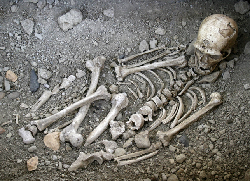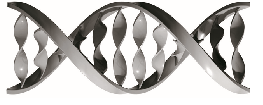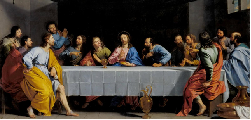April 2018 Culture and Society
Read the articles selected in April 2018
The role of public policies in developing entrepreneurial and innovation potential of the cultural and creative sectors
Source: European Commission
The cultural and creative sectors are a driver of positive change, promote social cohesion and the people’s well-being, creating intangible value for all the European economy. The European programmes should create a safe space, independent of particular interest groups, to discuss universal human values.
Read more:
Quelques vérités sur la post-vérité
By Luc Debraine
Source: Le Temps, 18 April
It’s easy to explain the post-truth hegemony in the contemporary communication with the cultural relativism and the inability to distinguish the reality from fiction. Less easy is an education helping to distinguish an assertion well-grounded. An always useful tool is the intelligent satire.
“Là où la violence psychique relevait de l’exception, elle est aujourd’hui l’ordinaire”.
By Sonya Faure
Source: Libération, 21 April
Violence has not vanished from the civilized societies but has acquired less resounding forms that have made own the rules of the social mechanisms. Instead of asking us whether we have become more sensitive or indifferent, we should understand the less visible, psychic dimension of the contemporary violence.
Revealed: how Doctor Asperger aided the Nazi project
By Kate Connolly
Source: The Guardian Domestic, 19 April
A historical study reveals the unknown alliance of the scientist pioneer in the field of child psychiatry with the Nazi regime, which doesn’t diminish the scientific importance of his contribution, but can’t be censured for the clinical consequences produced by that ideology.
Von wegen Dolce Vita
By Bernard Schulz
Source: Der Tagesspiegel, 24 April
An exposition at Palazzo Strozzi in Florence presents the Italian art from postwar until 1968 and culminated in the Arte Povera, which in the objects estrangement and the refusal of figurative images says the contestation of those years, arisen from the historical compromise of the young republic with its past.
2001: A Space Odyssey. How one film haunts our dreams of space
Source: The Observer Domestic, 15 April
Fifty years ago, this Kubrick’s movie swiped away from our imaginary outer space the Flash-Gordon westerns to begin an adventure which is a journey back to our origins and has inspired artists as well scientists, delivering the awareness that in our imagination is our future.
Milos Forman deus ex-cinéma
By Marco Uzal
Source: Libération, 16 April 2018
Born with the Czech Nouvelle Vague, Milos Forman has been a great nonconformist director, discreetly subversive and with a good place in the American cinema. His characters are heroes of the individual freedom, represented in strong and sarcastic contrast to the oppression, the puritanism and the absurdity of the society.
La privacidad, un asunto europeo
By Álvaro Sánchez
Source: El País, 8 April
The new European rules on the use of personal data require the citizens’ explicit consent, written over clear and not generical clauses, and are an affirmation of civilizations, beyond their potential obsolescence due to the rapid technological progress.
Venecia no olvida al libertino Casanova
By Álex Vicente
Source: El País, 15 April
In Venice opens the Casanova Museum and Experience, the first museum in the world dedicated to the famous seducer who has left the legacy of his life as a work of art, and through the marvel of the virtual technology it gives us back an epoch and the complexity of the eclectic libertine intellectual.
L’abstraction descend du singe
By Philippe Lançon
Source: Libération, 9 April
At the Grand Palais in Paris, a retrospective on Kupka’s works opens a window on the inception of the abstract art, here starting from a symbolic and interior landscape, inhabited by humanoid monkeys, with a sequence which follows the evolution of the modern art in an age dominated by the technique.
See attached
Jacques Testart: “ Le transhumanisme est le nouveau nom de l’eugénisme”
By Eugénie Bastié
Source: Le Figaro, 7 April
Au péril de l’humain by Jacques Testart recalls the history of the transhumanist movement from the origins to now. Born as a mishmash with the new age and the hippie movements, after 2000 it becomes the banner of a savior and almighty technology, an ideological surrogate offered at the end of the great political projects.
See attached
Time for a revolution in our sense of self?
By Nick Chater
Source: The Observer, 1 April
The reasons for human actions are not in submerged depths. Neither therapy, dream interpretation or brains scanning won’t discover the truth hidden in us, because it is present in our behaviors, says this behavioral psychologist.
See attached
Samantha suffers
By Victoria Brooks
Source: The Independent, 12 April
Sexual machines, entering in relation to humans raise ethical questions about their personhood. Before we decide whether they should be considered able to consent or refuse sex, the principle to not make others suffer and empathy are a good starting point.
Vedi allegato
Cuándo comenzaron los humanos a celebrar funerales?
By Daniel Mediavilla
Source: El Pais, 6 April

A study published in PNAS questions, in relation to two piles of human fossils discovered in Spain and South-Africa and going back up to 300.000 years ago, the symbolic character proper of funeral rituals, which seems to be a human distinctive feature even in a so remote age.
Read more:
https://elpais.com/elpais/2018/04/05/ciencia/1522948095_388069.html
Ein Philosoph abseits der Philosoph
By Sibylle Anderl
Source: Frankfurter Allgemeine, 31 March

Stephen Hawking was a great thinker, interested in a broad variety of topics concerning the humanity, a positivist who asked himself about the content of reality of the physical theories, and had a rapport of hate-love with philosophy.
Read more:
A bipartisan group of lawmakers is pushing for action on climate change
Source: The Economist, 5 April
Despite being global warming a divisive issue between Democrats and Republicans, the Climate Solutions Caucus, a group with an equal number of both aisles in the House of Representatives is urging President Trump to reconsider his climate policy.
Read more:
https://www.economist.com/blogs/democracyinamerica/2018/04/changing-congressional-climate
Et si l’animal était le futur de l’homme?
Source: Le Temps, 6 April

The genetic research is going towards the human-animal hybridization to create substitute organs. Before the technology, poetry has revealed us the exchange relationship we have with animals, that make us closer to our true nature.
Read more:
https://www.letemps.ch/culture/lanimal-etait-futur-lhomme
Wie aus einer Sauforgie ein Sakrament wurde
di Berthold Seewald
Fonte: Die Welt, 29 Marzo

In Gott essen: eine kulinarische Geschichte des Abendmals the thelogian Anselm Schubert brings back the Last Supper, which after the Christian faith has founded the Eucharist Sacrament to a long tradition whose model is the Greek symposium.
Read more:
Die logische Poesie der Energie
By Otto Wöhrbach
Source: Der Tagesspiegel, 26 March
100 years ago Emmy Noether showed for the first time the relation between the energy conservation and the temporary symmetries of the physical laws with a theorem which has been defined as one of the most beautiful mathematical formulas ever written. But nobody has dedicated a road to her so far.
Carlo Rovelli: “La notion de présent n’a pas vraiment de sens”
By Tristan Vey
Source: Le Figaro, 22 March
In his essay The Order of Time by Carlo Rovelli, which explains the decadence of the notion of universal time under the light of the most recent theories, the physician Carlo Rovelli questions the idea of exterior time, which is a dimension formed with the human evolution in the deepest brains mechanisms.
Retour à l’antique
By Pascal Ory
Source: L’Obs, 29 March
The death of Arnauld Beltrame has restored to us an ancient hero figure, so distant from the symbolic heroism of the society of the spectacle, but destined to appear again in the Western civilization, by now constrained to rediscover the own violence of the Prechristian societies.
Info
- Pubblicato il : 07/05/2018 Modificato il : 04/04/2019
Allegati
- Von wegen Dolce Vita pdf
- How Doctor Asperger aided the Nazi project pdf
- Aujourd'hui la violence psychique est l'ordinaire pdf
- Quelques vérités sur la postvérité pdf
- Venecia no olvida al libertino Casanova pdf
- La privacidad, un asunto europeo pdf
- Milos Forman deus ex-cinéma pdf
- 2001 A Space Odyssey pdf
- Samantha suffers pdf
- Time for a revolution in our sense of self pdf
- Jacques Testart et le transhumanisme
- L'abstraction descend du singe pdf
- Retour à l'antique pdf
- Carlo Rovelli pdf
- Die logische Poesie der Energie pdf

